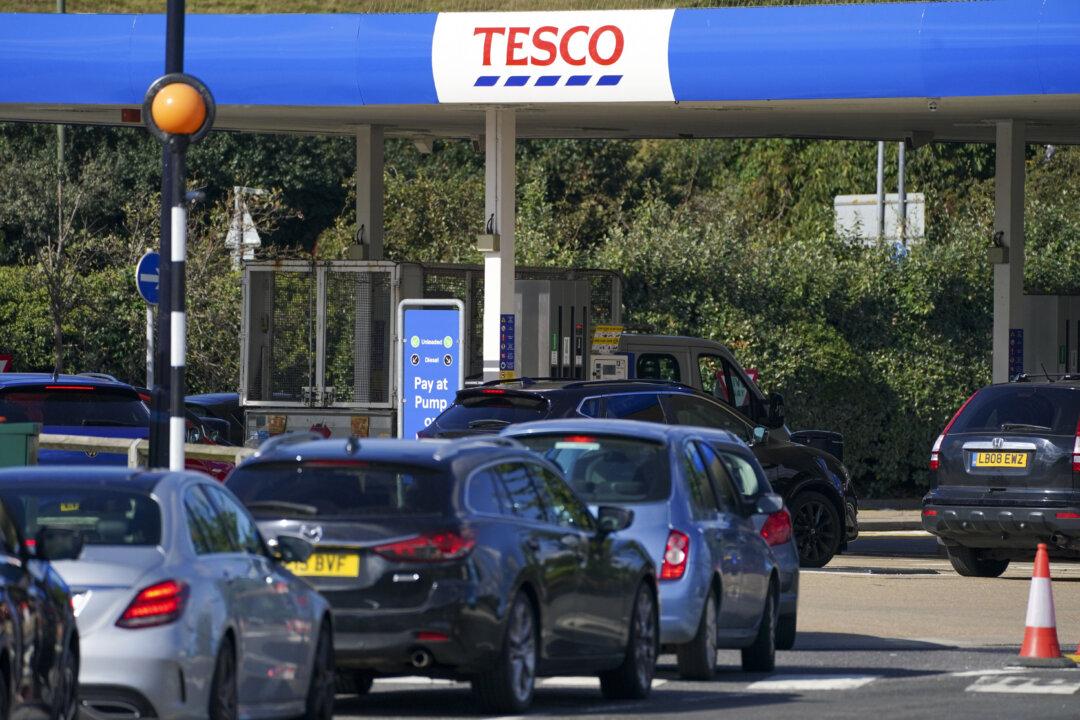Britain has deployed its army to restore fuel supplies across the nation after panic-buyers raced to forecourts to fill their cars over the past 10 days, leading to lengthy lines at gas stations and shortages across the country.
Around 200 service members are being drafted from the army and Royal Air Force as part of Operation Escalin—reportedly an existing plan to draft military drivers to deliver fuel to petrol stations in case it was needed after Brexit—and will deliver gasoline from depots to gas stations.




